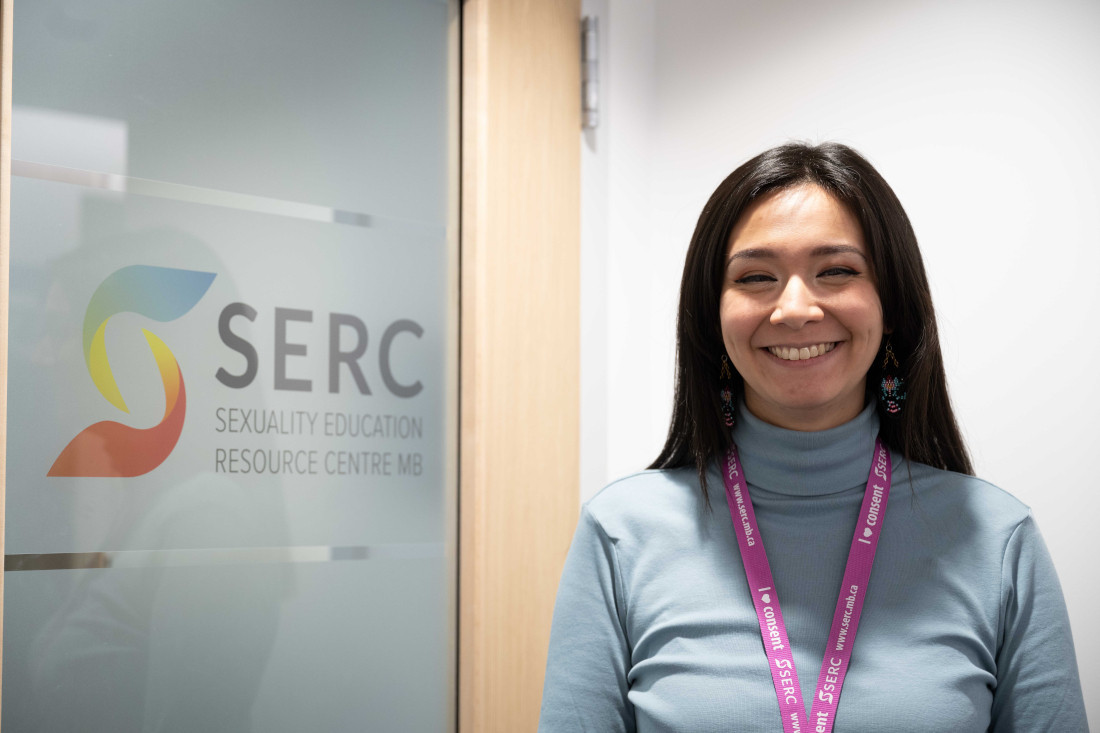The value of informed decisions
Local organizations work to combat sexual-health misinformation
Only 57 per cent of young Canadians say the sex education they received at school was or will be useful, according to a study published last year. Of the 1,507 people surveyed, 73 per cent listed sexual pleasure as a topic they’d like to learn more about – even though it’s rarely discussed in school programming.
A fraction of participants learned about sexual diversity and orientation (33 per cent) or sexual assault (39 per cent). There’s a disparity between what is taught to young people in schools and what they’d like to learn. In many cases, students look for information elsewhere.
“We realize that most people are seeking information on the internet, and that not all of it is accurate or locally relevant,” Shauna Fay, a health educator at Nine Circles Community Health Centre, says.
Nine Circles recently launched the Sex Friendly Manitoba website, where people can submit questions related to sexually transmitted and blood-borne infections (commonly called STBBIs), testing and safer-sex practices. Health educators then answer the questions.
“The goal of the site is to provide factual info and encourage people to connect with healthcare that works for them,” Fay says.
Sexual-health misinformation contributes to harmful stereotypes and “may lead people to overestimate or underestimate the importance of testing for sexually transmitted infections,” she says. Fay hopes Sex Friendly Manitoba will help remove some of the stigma surrounding STBBI screening and create a space where people can comfortably share their sexual experiences.
Brianna Wentz is the communications coordinator at Manitoba’s Sexuality Education Resource Centre (SERC). She says the centre provides community and evidence-based sexuality education, which is especially important in the social-media age.
People may look to “wellness influencers” for information that is not necessarily factual or scientifically based, Wentz says. She also notes that, with the prevalence of online pornography, inclusive and realistic information is increasingly important.
“Many (young people) are learning about sex from porn, and that’s going to give people unrealistic and unhealthy expectations,” Wentz says.
SERC holds both in-person and virtual training sessions, led by educators, to help combat misinformation and share sexual-health resources with students and clients.
The centre also works closely with specific communities. SERC’s 2SLGBTQ+ Program provides education, support groups, counselling services, workshops and a resource library for members of these identity groups.
SERC also offers harm-reduction programming, which includes their PnP program. Also called “Party N Play” or “Chemsex,” PnP refers to the practice of using drugs as part of sex, which is especially common within 2SLGBTQ+ communities. The program distributes harm-reduction supplies and shares resource videos from other similar organizations.
Wentz says SERC also works with newcomers “to help open up conversations about sex and relationships” and provide people with “comprehensive, evidence-based information.”
All this is important, she says, because sexual education “empowers people to make informed decisions for themselves.”
“It reduces instances of violence and gender-based violence. It lowers the prevalence of child sexual abuse, because children are more comfortable stating their boundaries or telling an adult if someone has violated them. It reduces incidences of homophobia and homophobic bullying by creating a deeper appreciation for sexual diversity. It lowers incidents of intimate violence and gives people the information and ... communication skills to set up healthy relationships.”
Visit Nine Circles’ Sex Friendly Manitoba website at sexfriendlymb.ninecircles.ca.
Published in Volume 77, Number 19 of The Uniter (February 16, 2023)








